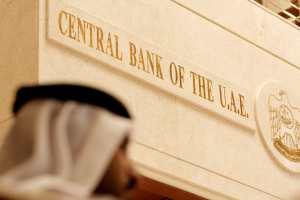Ewec targets to increase solar power generation capacity by 600% in Abu Dhabi

Emirates Water and Electricity Company (Ewec) plans to increase its solar power capacity by 606% by 2030 as part of the United Arab Emirates’ goal of achieving net zero emissions by 2050. The Abu Dhabi-based utility aims to increase its solar power capacity to 7.3 GW by 2030, according to its Statement of Future Capacity Requirements report. The report forecasts a requirement of an additional 3 GW of solar power capacity by 2029 on top of the 1.5 GW procured from the Al Ajban Solar PV Project. The Abu Dhabi Department of Energy has approved the recommendations, which call for continued investment in low-carbon intensive reverse osmosis water desalination technology.
The report also suggests the acquisition of at least 300 MW of battery capacity before 2026 to ensure the availability of operational reserves and other essential services that can enhance the system’s operability and network stability. The initiatives will reduce Ewec’s carbon dioxide intensity per kilowatt hour by 42% by 2029, the report said.
The United Arab Emirates aims to invest $160bn in clean and renewable energy sources over the next three decades. The country has already made progress towards its goal of reducing its carbon footprint, becoming the first Middle Eastern country to set a net-zero target, which it aims to achieve by 2050. The construction of clean energy plants, including the Mohammed bin Rashid Solar Park in Dubai and the two-gigawatt plant in Al Dhafra in Abu Dhabi, is a priority.
Ewec’s growing portfolio of renewable and clean energy projects is accelerating the decarbonisation of the country’s energy sector, according to the company’s CEO Othman Al Ali. The report provides a powerful reference that outlines Abu Dhabi and the UAE’s future needs, said Al Ali. Clean energy accounts for more than 60% of the total power Ewec generates, the company said in December.
The recommendations in the report will enable more than 90% of the total water demand to be fulfilled using reverse osmosis by 2030. Reverse osmosis is a membrane-based method of desalination that uses less energy compared to the thermal process used to produce fresh water. Ewec’s initiatives will increase network stability and enhance system operability, the company said.
The meeting of these goals will help reduce emissions and enable Ewec to provide secure, sustainable, and least-cost supply of water and electricity across Abu Dhabi and beyond, according to Bruce Smith, strategy and planning executive director at Ewec. By diversifying its energy mix and increasing the share of renewable energy and low-carbon intensive RO, Ewec will be able to ensure a sustainable supply of water and electricity.





h0nan
where to get clomid clomid medication effects what is clomid medication can i purchase cheap clomid without insurance where can i buy clomiphene without prescription where buy generic clomid tablets cost of cheap clomiphene without rx
June 3, 2025can cialis pills split
This is a keynote which is forthcoming to my verve… Myriad thanks! Faithfully where can I notice the connection details an eye to questions?
June 8, 2025why is flagyl no longer recommended for c diff
This website really has all of the information and facts I needed adjacent to this participant and didn’t identify who to ask.
June 10, 20253ok95
purchase azithromycin without prescription – tetracycline 250mg for sale buy generic metronidazole 200mg
June 12, 2025s3mtf
buy generic semaglutide over the counter – cyproheptadine for sale generic cyproheptadine
June 13, 2025odyhz
motilium tablet – flexeril 15mg for sale brand flexeril 15mg
June 15, 2025ek5mm
buy inderal 20mg – buy generic methotrexate over the counter methotrexate 10mg drug
June 17, 20250vo8i
how to get amoxicillin without a prescription – buy valsartan 80mg sale ipratropium pills
June 20, 2025qplhe
buy zithromax 500mg for sale – nebivolol medication nebivolol 20mg pill
June 22, 2025zkihh
generic clavulanate – atbio info buy generic ampicillin
June 24, 2025p53ey
oral esomeprazole 40mg – https://anexamate.com/ esomeprazole sale
June 26, 20254kr23
medex pills – blood thinner hyzaar where to buy
June 27, 2025s0fe5
order meloxicam 7.5mg generic – https://moboxsin.com/ order meloxicam 15mg for sale
June 29, 2025vw6su
deltasone 40mg us – aprep lson order prednisone online cheap
July 1, 2025ajoy9
medicine for erectile – fastedtotake cheap erectile dysfunction pills online
July 2, 2025xrqw2
cheap amoxil tablets – https://combamoxi.com/ purchase amoxil generic
July 4, 2025ejrq5
cost diflucan – click buy generic diflucan
July 9, 2025j9g8i
purchase cenforce sale – https://cenforcers.com/# cenforce 50mg cheap
July 11, 2025nrgg1
cialis tadalafil 20mg tablets – https://ciltadgn.com/# tadalafil and ambrisentan newjm 2015
July 12, 2025ConnieGuamy
ranitidine 300mg cheap – https://aranitidine.com/ buy ranitidine pills for sale
July 13, 2025p55kr
cialis online reviews – https://strongtadafl.com/ when will teva’s generic tadalafil be available in pharmacies
July 14, 2025ConnieGuamy
More articles like this would remedy the blogosphere richer. this
July 15, 2025dt8se
buy soft viagra – https://strongvpls.com/# sildenafil sandoz 50mg
July 16, 2025b3xmo
With thanks. Loads of erudition! https://buyfastonl.com/azithromycin.html
July 18, 2025ConnieGuamy
Thanks for putting this up. It’s understandably done. https://ursxdol.com/ventolin-albuterol/
July 19, 202597sgv
This is the make of advise I find helpful. https://prohnrg.com/product/acyclovir-pills/
July 21, 2025ljba2
More posts like this would add up to the online elbow-room more useful. https://aranitidine.com/fr/ivermectine-en-france/
July 24, 2025ConnieGuamy
Greetings! Very gainful advice within this article! It’s the little changes which choice obtain the largest changes. Thanks a portion in the direction of sharing! https://ondactone.com/spironolactone/
August 4, 2025ConnieGuamy
More posts like this would create the online time more useful.
August 7, 2025hyzaar sale